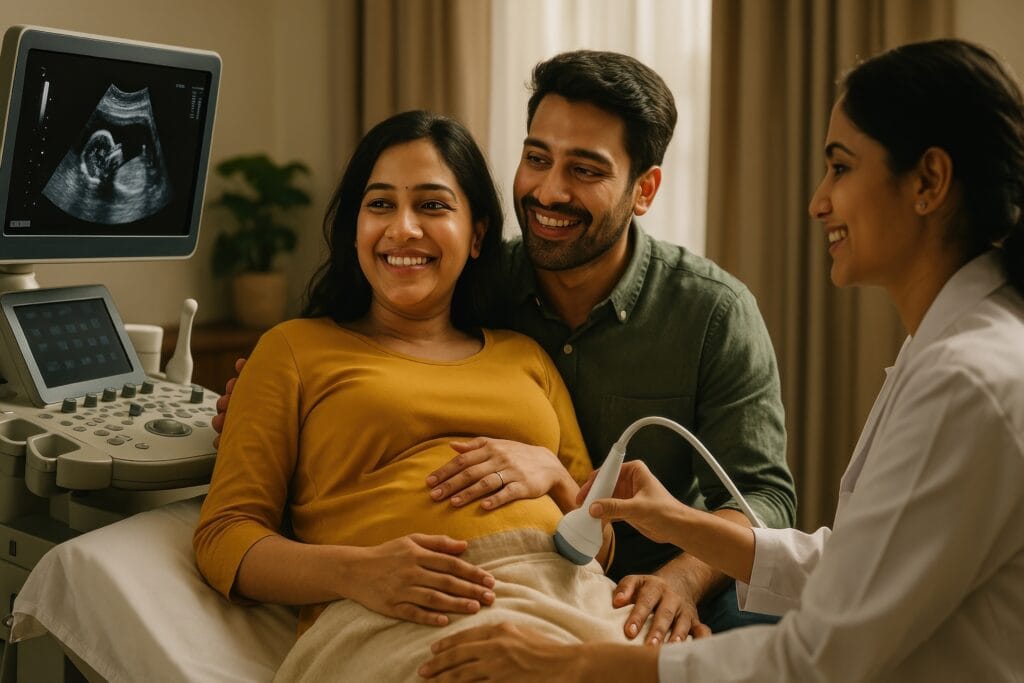Starting a family is a joyful milestone for many couples and individuals – but when pregnancy doesn’t happen as expected, it’s natural to feel confused, frustrated, or even worried. Fertility struggles are more common than most people think – and the good news is, timely support from a fertility specialist can make a significant difference.
At Womb IVF and Fertility, we often meet individuals who wonder, “Is it too early to see a fertility doctor?” or “Should I wait a little longer?” So here are the signs and timelines that indicate it may be time for you to consult a fertility expert.
Understanding Fertility: A Quick Overview
Before diving into the when, let’s talk about the what. Fertility is the natural capability to conceive. A healthy couple under 35 has around a 15–20% chance of getting pregnant each month. If conception isn’t happening even after months of trying, it could signal an underlying issue.
So, When Should You See a Fertility Specialist?
- If You’re Under 35 and Have Been Trying for Over 12 Months
If you’ve been having regular, unprotected intercourse for a year without success, it’s time to consider a fertility evaluation. This is one of the most common benchmarks used by fertility clinics around the world.
- If You’re Over 35 and Have Been Trying for Over 6 Months
Female fertility naturally declines with age, especially after 35. If pregnancy doesn’t occur within six months of trying, a fertility consultation is strongly recommended.
- If You Have Irregular or Absent Periods
Irregular menstrual cycles can signal problems with ovulation, which is one of the leading causes of infertility. Polycystic Ovarian Syndrome (PCOS), thyroid imbalances, or hormonal disorders may be responsible—and all of these require a specialist’s attention.
- If You Have a History of Miscarriages
Recurrent pregnancy loss (two or more miscarriages) can point to genetic, hormonal, or uterine issues. A fertility specialist can help identify the cause and suggest treatment options.
- If You or Your Partner Have Known Health Conditions
Conditions like endometriosis, PCOS, fibroids, diabetes, thyroid disorders, or even sexually transmitted infections (STIs) can affect fertility. Similarly, low sperm count, poor sperm motility, or varicocele in men are red flags that require medical attention.
- If You’ve Undergone Cancer Treatments
Chemotherapy and radiation can affect fertility in both men and women. If you’ve been through cancer treatment and are now looking to start a family, a fertility consultation is essential to understand your options, including egg or sperm freezing, IVF, or donor programs.
- If You Want to Explore Fertility Preservation
You don’t have to be trying for a baby now to meet a fertility specialist. Women who want to freeze their eggs due to career goals, health issues, or personal choices should consult a fertility expert to understand the best time and process.
What to Expect During Your First Fertility Consultation
At Womb IVF and Fertility, we create a warm, supportive, and judgment-free environment. During your first visit, you can expect:
A detailed medical history discussion
Blood tests to check hormone levels
Pelvic ultrasound for women
Semen analysis for men
A plan tailored to your body, lifestyle, and goals
We use advanced fertility treatments including IVF (In-Vitro Fertilization), IUI (Intrauterine Insemination), egg freezing, and more.
Fertility journeys are deeply personal—and no two stories are the same. But what remains common is the power of early intervention. If your intuition says something feels off, listen to it. A timely conversation with a fertility specialist could bring you closer to your dream of parenthood.
At Womb IVF and Fertility, we’re here to answer your questions, ease your anxieties, and support you every step of the way. Because you deserve clarity, care, and compassionate science.

